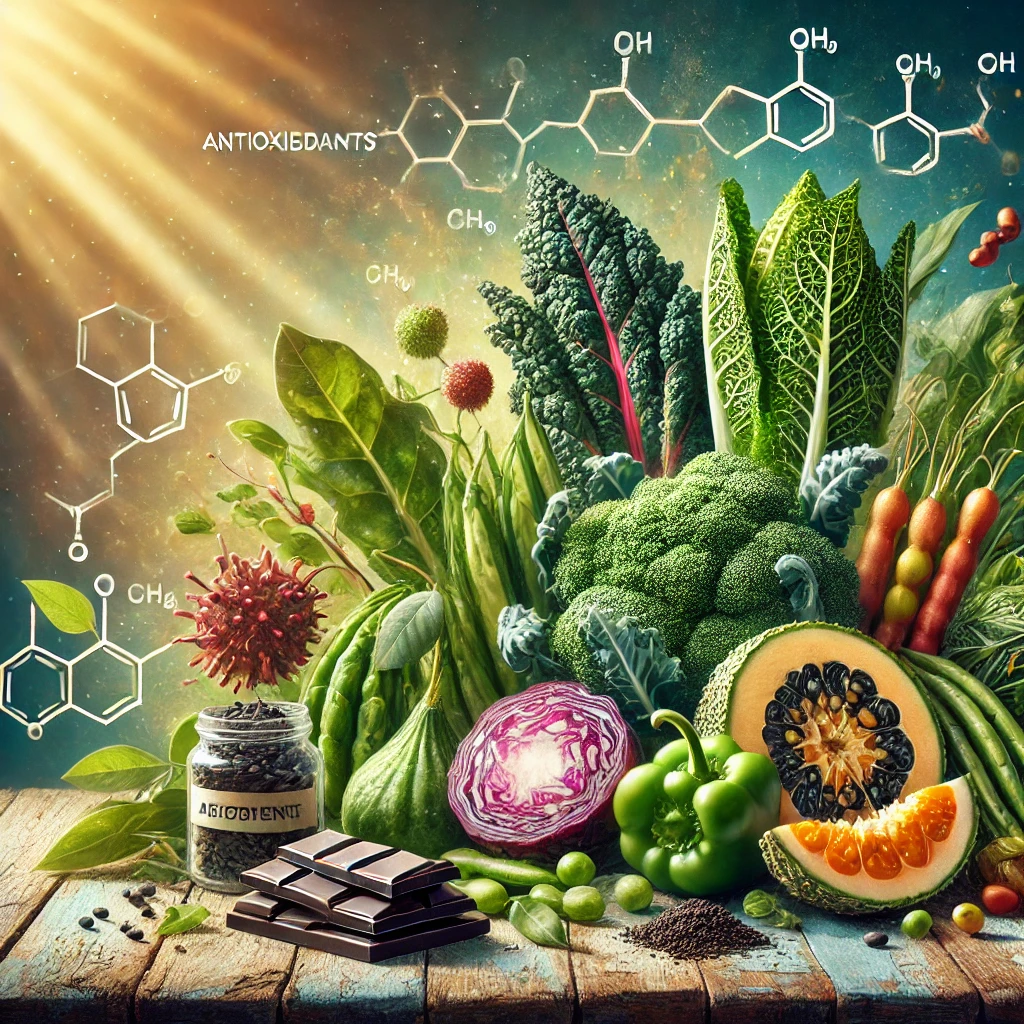Table of Contents
Introduction to Bitter Foods and Their Nutritional Profile
Bitter foods, characterized by their distinct taste, often include a variety of greens, herbs, and certain fruits. Some common examples of bitter foods are dandelion greens, arugula, kale, Brussels sprouts, and citrus peel. While the taste may not be universally loved, incorporating these foods into one’s diet can yield substantial health benefits due to their rich nutritional profiles.
The nutritional value of bitter foods is significant, as they are typically packed with essential vitamins and minerals. Many bitter greens, for example, are excellent sources of vitamin K, vitamin A, and folate. Additionally, these foods often provide vital minerals such as calcium, iron, and magnesium, contributing to overall bodily functions. Furthermore, bitter foods are high in dietary fiber, which supports digestive health, promotes satiety, and may help regulate blood sugar levels.

One of the most intriguing aspects of bitter foods lies in their unique flavor compounds, which contribute to their characteristic bitterness. These compounds, known as phytochemicals, include flavonoids and polyphenols, which are known to possess antioxidant properties. Antioxidants are essential in combating oxidative stress within the body, thereby lowering the risk of chronic diseases, such as heart disease and cancer. The incorporation of bitter foods into the diet is thus linked to enhanced health outcomes.
The importance of bitter foods is further emphasized by their potential role in flavor profile enhancement of various dishes. Although many individuals may shy away from bitterness due to its strong taste, encouraging the inclusion of these foods can lead to a more balanced diet and improved health. Understanding the nutritional benefits of bitter foods is critical, setting the stage for exploring their antioxidant properties and the implications for disease prevention.
The Science of Antioxidants: How Bitter Foods Benefit Health
Antioxidants are vital compounds that play a crucial role in protecting our bodies from oxidative stress, which arises from an imbalance between free radicals and antioxidants. Free radicals are unstable molecules that can cause cellular damage, leading to a wide range of chronic diseases, including heart disease, cancer, and neurodegenerative disorders. The consumption of foods rich in antioxidants is essential for maintaining optimal health, and among these, bitter foods stand out due to their unique composition of beneficial phytochemicals.
Bitter foods, such as kale, dandelion greens, and dark chocolate, are characterized by their high levels of antioxidant compounds, including flavonoids, polyphenols, and carotenoids. These phytochemicals work synergistically to enhance the body’s antioxidant capacity, thereby neutralizing free radicals and reducing oxidative damage. For example, the flavonoids found in bitter foods not only exhibit potent antioxidant activity but also promote the production of the body’s own antioxidant enzymes, further strengthening the defense mechanisms against cellular harm.
Research has shown that incorporating bitter foods into one’s diet can significantly boost antioxidant levels. In a study examining the effects of bitter greens on oxidative stress markers, participants who consumed large amounts of these foods demonstrated a marked reduction in oxidative damage compared to those with lower intake. This suggests that the regular consumption of bitter foods can play a proactive role in disease prevention.
In addition to their high antioxidant content, bitter foods also support overall health through their anti-inflammatory properties and ability to enhance digestion. The bitter taste can stimulate the secretion of digestive juices, which aids in nutrient absorption and metabolic function. By embracing a diet rich in bitter foods, individuals can leverage the power of antioxidants to fortify their health and mitigate the risk of chronic diseases.
Linking Bitter Foods to Disease Prevention
Bitter foods have been gaining attention in recent years due to their potential role in disease prevention, particularly concerning chronic conditions such as heart disease, diabetes, and certain cancers. The distinct taste of bitterness often signals the presence of beneficial phytochemicals known for their antioxidant properties. These compounds can contribute to the reduction of oxidative stress in the body, a significant factor associated with the development of chronic diseases. One prominent class of antioxidants found in bitter foods includes flavonoids, which have demonstrated protective effects against cellular damage.
Recent research studies have shed light on the effectiveness of these compounds in promoting heart health. For instance, a study published in a reputable journal showed that individuals who regularly consume bitter vegetables, such as kale and arugula, exhibit lower levels of LDL cholesterol and improved endothelial function. Such benefits play a critical role in reducing the risk of cardiovascular disease. Similarly, the consumption of bitter foods has been linked to enhanced glycemic control, which is essential in managing diabetes. Bitter melon, for example, contains compounds that mimic insulin, potentially aiding in sugar regulation.
Moreover, the role of bitter foods extends to cancer prevention, as certain compounds exhibit anti-inflammatory and anticancer properties. Research indicates that a diet rich in bitter vegetables can lower the risk of colorectal cancer, possibly by promoting gut health through improved digestion and increased beneficial gut bacteria. The gut microbiome plays a critical role in regulating inflammation, and bitter foods may enhance this balance, leading to a more robust immune response and reduced inflammation in the body.
In summary, the consumption of bitter foods appears to have significant implications for disease prevention. By incorporating these foods into a balanced diet, individuals may harness their beneficial properties to support long-term health and well-being.
Incorporating Bitter Foods into Your Diet
Incorporating bitter foods into your diet can offer various health benefits, particularly due to their rich antioxidant properties. As many people often shy away from the strong flavors of bitters, understanding how to balance these elements within your meals can enhance both taste and nutritional value. There are several practical methods to include bitter foods in your everyday diet without overwhelming your palate.
One effective approach is to start with small portions. Gradually introducing bitter ingredients, such as arugula, dandelion greens, or kale, into salads can allow your taste buds to adjust. A simple arugula salad mixed with sweet fruits, such as slices of oranges or pomegranates, alongside a drizzle of honey vinaigrette, can soften the bitterness while enriching the dish’s flavor profile. Additionally, cooking bitter vegetables like Brussels sprouts can mellow their strong taste; roasting them with a sprinkle of salt and olive oil can create a delectable dish that highlights their unique flavors.
When preparing meals, consider combining bitter foods with complementary flavors. Ingredients like citrus, which add brightness, or spices such as cumin can create an appealing balance. Incorporating lemon juice or zest into a dish featuring bitter greens provides a refreshing contrast that can make the flavors more enjoyable. Smoothies are another excellent method of consuming bitter foods; blending kale or spinach with sweet fruits and yogurt can mask the bitterness while delivering vital nutrients.
Overcoming the natural aversion to bitter flavors may require experimentation. Encourage yourself to try various recipes, combining bitter foods with different cooking techniques to discover what works best for you. By integrating these healthful ingredients into your meals, you can enjoy their diverse flavors and enhance your overall well-being through their antioxidant benefits.






